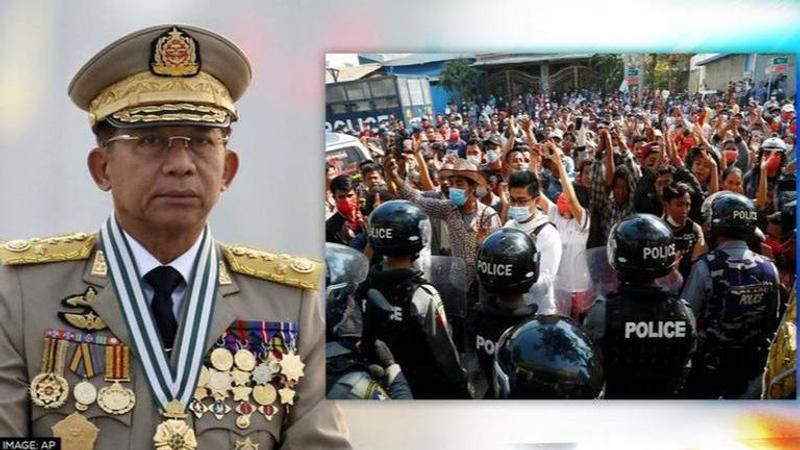Published 06:20 IST, February 4th 2022
Myanmar must consider ‘power sharing’ with military Junta, says UN envoy; invites backlash
Nearly 250 civil society organizations condemned UN envoy’s remarks, warning that it risks emboldening the military to commit “grave crimes with impunity."

UN special envoy to Myanmar on Thursday, Feb 3 attracted widespread backlash and was widely rebuked for making televised statements that suggested that pro-democracy activists should negotiate a power-sharing agreement with the military Junta. UN Special Envoy, Dr. Noeleen Heyzer’s proposal angered the pro-democracy activists that reminded the UN official about the military’s human rights abuses, civilian crackdowns, and the forceful siege of Myanmar’s political power after an organized coup on February 1, 2020.
Nearly 250 civil society organizations on Thursday condemned the UN envoy’s remarks, warning that it risks emboldening the military to commit “grave crimes with total impunity,” according to their joint statement.
“These statements could set a dangerous precedent, that those who take control through brutal means – massacring, killing, raping, arresting, torturing, burning villages and people, targeting civilians using airstrikes and shelling – be welcomed to share power,” the joint statement signed by 247 local and national civil society groups read on Feb. 3. This included Progressive Voice, Women’s League of Burma, and Union of Karenni State Youth.
'The point is, we have to start a process..': UN envoy to Myanmar
During an interview with Channel News Asia (CNA) earlier, the UN’s special envoy for Myanmar was questioned about ways to handle the Myanmar crisis. To this, Noeleen Heyzer responded that there should be a power-sharing arrangement with the Myanmar military Junta, despite that the Junta rule is staunchly opposed by the pro-democracy Myanmar citizens.
“The point is, we have to start a process. And you can’t immediately come in with the ultimate solution of what you want. The military is in control at this particular time and something has got to be worked out. It could be a process,” UN’s envoy said in her televised comments that sparked controversy.
She went on to add: “I know that many people, especially the young, are willing to die fighting for a total political transformation. Any political transformation requires a process and it is not going to happen overnight.” She then said, “I want them [civilians] to have something to live for, not to die for. They need to negotiate what this power-sharing could look like over the long term. And they have to be at the table.” As her remarks stirred angst, and condemnation from Myanmar citizens and activists, the office of the special envoy of the secretary-general on Myanmar issued a statement clarifying that the envoy’s remark was “misinterpreted” and that she had “never proposed power-sharing as an option.”
“The special envoy has emphasized in no uncertain terms that any peace process has to be led by the people of Myanmar,” the statement from office of the special envoy of the secretary-general on Myanmar read.
Naw Hser Hser, of the Women’s League of Burma, one of the signatories meanwhile lambasted the UN saying that it is deterring away from real issues of Myanmar. “Despite vehement calls from the people of Myanmar, the UN has yet to take action to stop the terrorist military’s grave crimes,” she asserted. Hser Hser added that the military Junta was losing ground in rural areas. “They are far from being in control,” said Naw Hser Hser.
Meanwhile launching a scathing verbal attack on the UN envoy, Zoya Phan, coordinator of the European Karen Network, reportedly said, “The Burmese military was in a power-sharing with the NLD-led government before the coup. However, the attacks against ethnic people didn’t stop.”
Updated 06:20 IST, February 4th 2022




